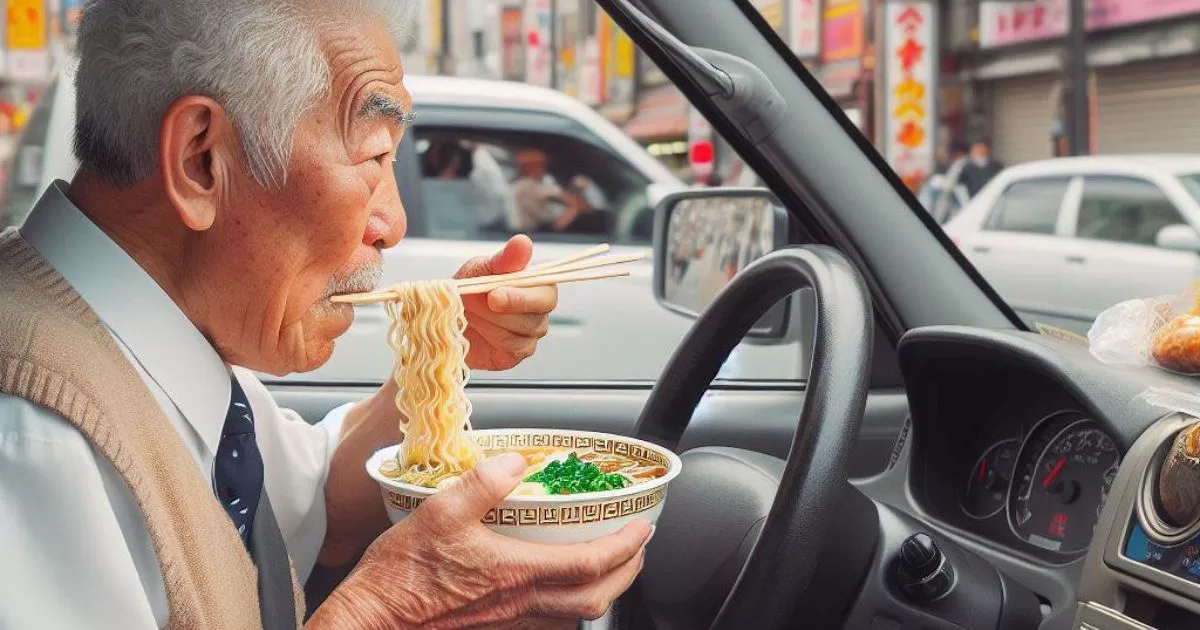Back in 2016, police in Aichi Prefecture, Japan launched an inventive program to encourage elderly drivers to voluntarily surrender their licenses. The goal was to reduce the rising number of traffic accidents caused by senior citizens.
At the time, accidents involving drivers over 74 years old had increased significantly over the prior decade, even as overall accidents declined. This reflected Japan’s rapidly aging population, with an estimated 17 million people aged 65+ holding valid licenses, 4.8 million of them over 75. Accidents often involved mistaking the gas for the brake or driving the wrong way.
To incentivize seniors, Aichi police arranged a clever noodle discount. Elderly drivers who turned in their licenses would receive a 15% discount at 176 locations of the popular Sugakiya restaurant chain. All they had to do was present a certificate issued by the police confirming they relinquished their driving privileges. The savings applied to Sugakiya’s low-cost set menu of ramen noodles, rice and salad—a tasty reward for giving up driving.
Other discounts were also introduced around Aichi prefecture, like reduced rates at public baths, barbershops, taxis and more. In the year leading up to the noodle promotion, 12,000 local drivers had already taken advantage of these incentives.
The noodle deal was an effort by police over the years to persuade seniors to stop driving voluntarily. A national debate was underway about how to curb accidents involving the elderly. Earlier in 2016, a 97-year old Buddhist priest had publicly surrendered his own license to set an example and encourage his peers to follow suit for the sake of public safety.
By the next year, new national measures kicked in requiring drivers over 74 to be assessed for cognitive decline if caught violating traffic laws or displaying symptoms in routine tests. Those showing impairment faced license suspension or revocation. Still, only a tiny fraction of senior drivers had given up licenses, so creative local incentives remained in use to supplement national policy.
It’s unclear whether the Aichi police department still offers its popular noodle discount for senior license turn-ins. But the program showed that with some creativity, authorities could encourage positive public safety behavior instead of mandates. And a nice hot bowl of ramen never hurts as added motivation. As Japan’s population continues to age rapidly, policymakers may need more clever ideas like this to care for older generations.

